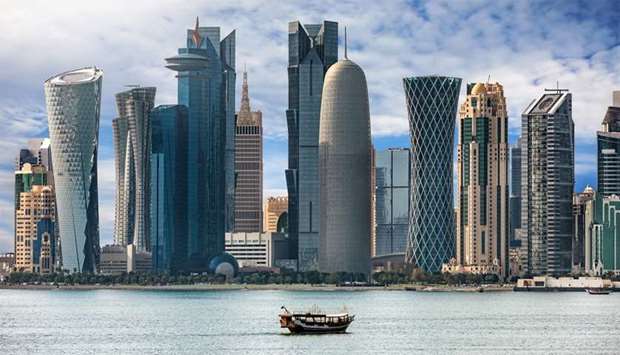Qatar’s inflation will average 2.6% this year, significantly above a consensus of just 1.5%, BMI Research has said in a report.
The difference, the Fitch Group company said, can largely be explained by the fact that it is factoring in the implementation of a 5% value-added tax (VAT) in H2, 2018.
Given the Qatari government's insistence, during its latest round of talks with the International Monetary Fund, that the implementation would proceed as scheduled, BMI continues to price in inflationary effects in the last months of the year — though it does note “substantial risks of a delay, as preparation appears to still be ongoing.”
Meanwhile, the aforementioned oil price gains in H1, 2018, also help explain BMI’s above-consensus view: these gains will affect transport and input costs, and fuel demand-pull inflation given that oil prices also remain a key determinant of confidence and growth in the Qatari economy.
BMI also highlights that the inflationary effects of the housing market correction seen over 2017 appear to be waning, further easing downside pressure on prices.
The report said the rally in oil prices in recent months has led it to revise its forecast for Kuwait's real GDP growth from 1.9% to 2.4% for 2018, placing BMI significantly above Bloomberg consensus of 1.9%. Higher Brent prices — forecast by its analysts to rise from an average $54.7 per barrel in 2017 to $73 per barrel in 2018, above Bloomberg consensus of $70/b — will boost state revenues, in turn encouraging an uptick in government spending. More broadly, this dynamic will contribute to confidence gains in the wider economy, encouraging investment and consumption.
“We also highlight further upside risk to our current forecasts, presented by the possibility that Opec may further loosen supply constraints,” BMI Research said.
Given the Qatari government's insistence, during its latest round of talks with the International Monetary Fund, that the implementation would proceed as scheduled, BMI continues to price in inflationary effects in the last months of the year — though it does note “substantial risks of a delay, as preparation appears to still be ongoing.”
Meanwhile, the aforementioned oil price gains in H1, 2018, also help explain BMI’s above-consensus view: these gains will affect transport and input costs, and fuel demand-pull inflation given that oil prices also remain a key determinant of confidence and growth in the Qatari economy.
BMI also highlights that the inflationary effects of the housing market correction seen over 2017 appear to be waning, further easing downside pressure on prices.
The report said the rally in oil prices in recent months has led it to revise its forecast for Kuwait's real GDP growth from 1.9% to 2.4% for 2018, placing BMI significantly above Bloomberg consensus of 1.9%. Higher Brent prices — forecast by its analysts to rise from an average $54.7 per barrel in 2017 to $73 per barrel in 2018, above Bloomberg consensus of $70/b — will boost state revenues, in turn encouraging an uptick in government spending. More broadly, this dynamic will contribute to confidence gains in the wider economy, encouraging investment and consumption.
“We also highlight further upside risk to our current forecasts, presented by the possibility that Opec may further loosen supply constraints,” BMI Research said.

